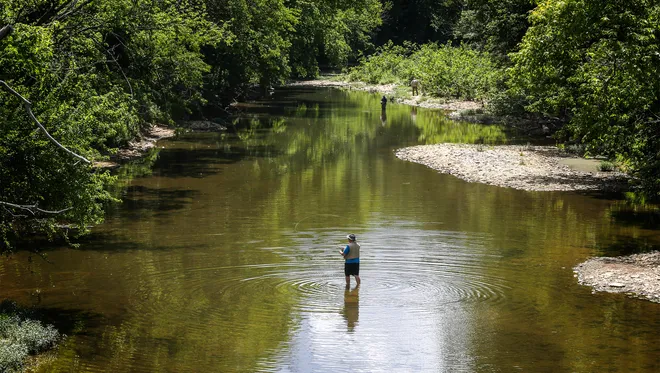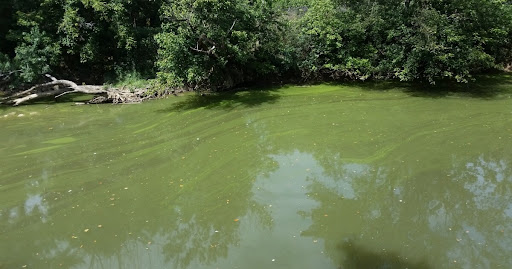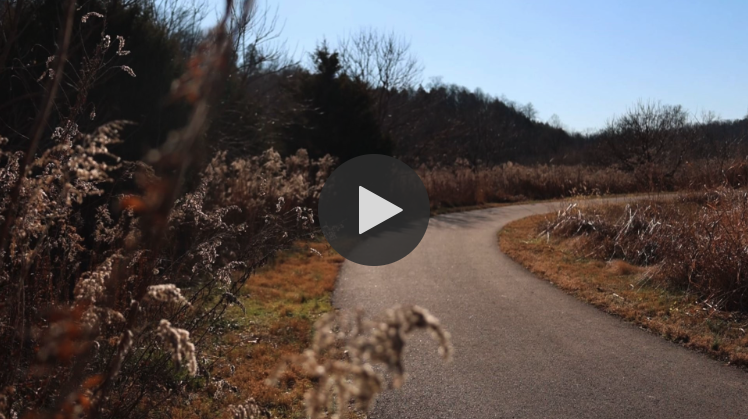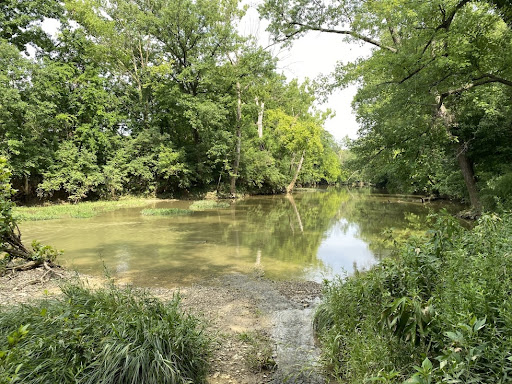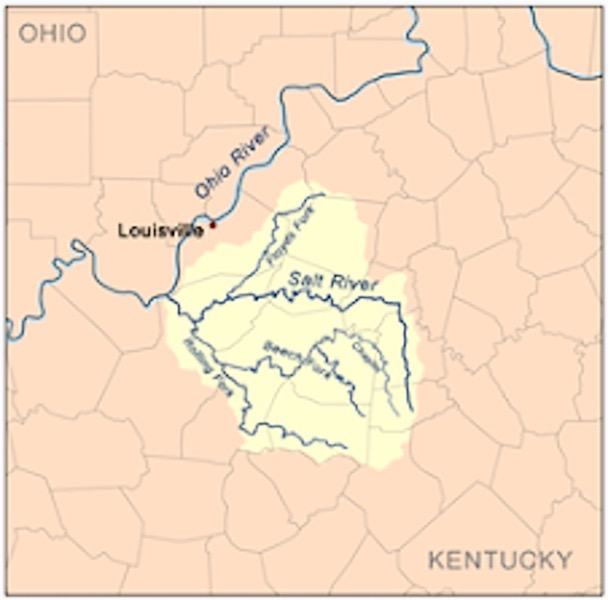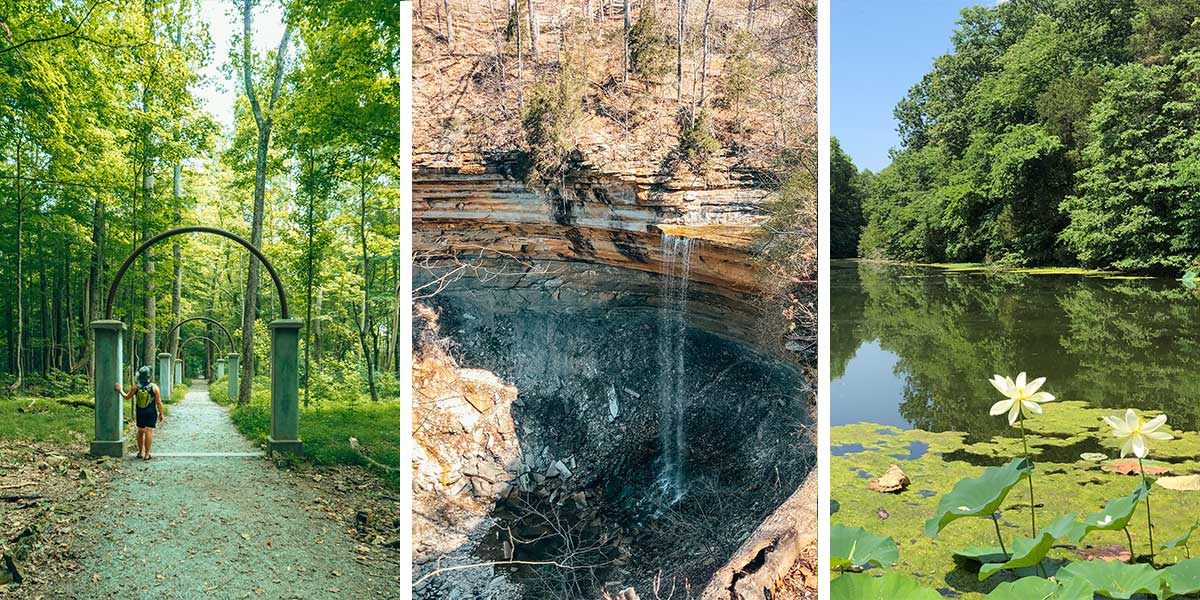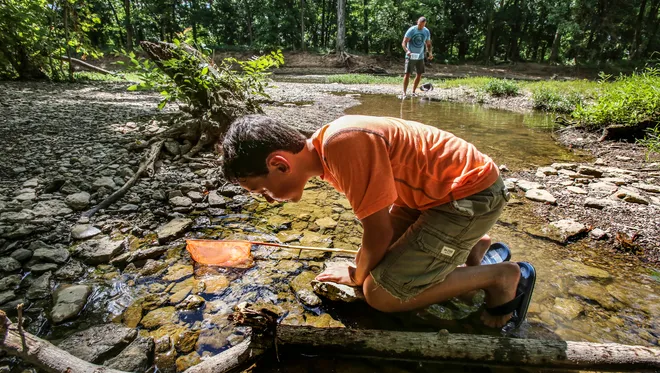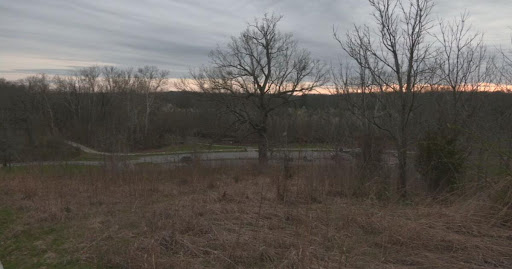In the News
Connor Giffin of the Courier Journal reports on the responses to Louisville Metro Planning & Design Services Floyds Fork DRO draft changes.
Louisville Public Media's Jacob Munoz wrote this article on the proposed 6-month moratorium that would pause development proposals from being advanced through PDS while the DRO review is being completed.
Louisville community members comment on development plan for Floyds Fork
These lands are part of Future Fund Land Trust and 21st Century Park's plan to protect the Floyd's Fork Watershed from encroachment.
Read Article
David Mattingly of Wave 3 News features Louisville Keep Your Fork's efforts to protect the Floyds Fork watershed.
What did Louisville lawmakers accomplish in 2024? Here are the biggest laws they passed.
Read Article
Art Lander’s Outdoors: Kentucky’s Salt River flows into the Ohio River south of Louisville
Editor’s note: This is the fourth article in an occasional series profiling the river basins of Kentucky.
The Salt River is 150 miles long and flows into the Ohio River south of Louisville.
The river basin is the fifth largest in the state, and drains about 2,920 square miles in six north-central Kentucky counties.
This article discusses the impact of Floyds Fork on the Salt River.
Let's Go Louisville article about hikes along Floyds Fork DRO
The Parklands of Floyds Fork is only about 20 miles outside of downtown Louisville, but it feels like you’re in an entirely different world.
Wild Hyacinth Trail
Moss Gibbs Woodland Garden Trail
Valley of the Giants Trail
The Parklands awarded prestigious environmental protection medal
The Garden Club of America announced the Parklands as the 2022 recipient of theCynthia Pratt Laughlin Medal. The medal recognizes leaders and organizations for outstanding achievement in environmental protection and maintenance of the quality of life. The award has been given out each year since 1980.
How to kill a Louisville Stream?
In 2017, James Bruggers of the Courier Journal, wrote a fabulous article on the effect of dense development around Floyds Fork.
"One of the surest ways to kill a stream is to build a city around it. Replacing forests and fields with asphalt and roofing prevents rain from naturally filtering into the ground."
The City of Louisville has done this before with Beargrass Creek as it flows through concrete channels.
Floyds Fork isn't just "moving water", it's teaming with LIFE. What generation wants to own the responsibility for the death of this natural inheritance?

